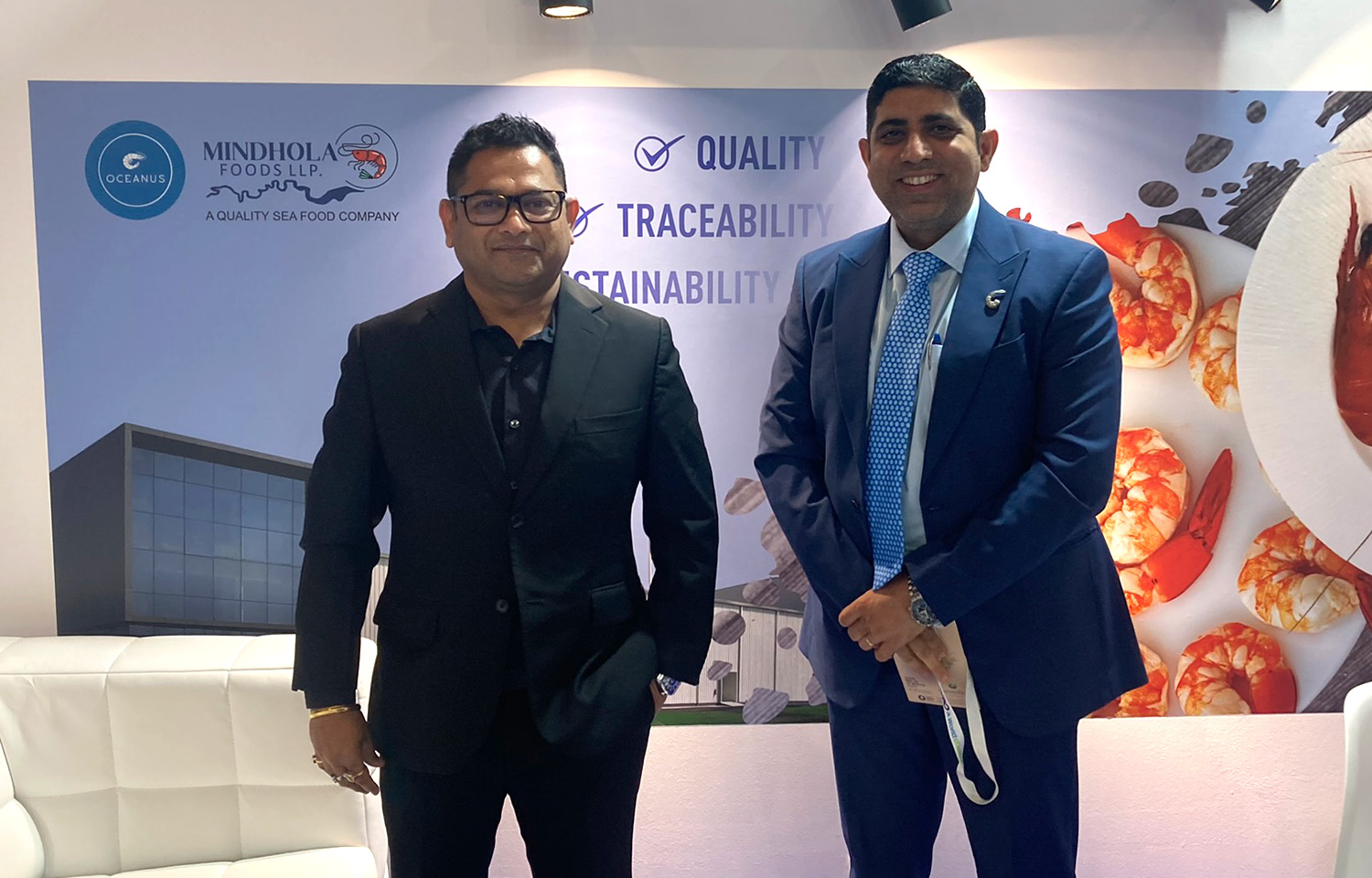Vesu Chokdi, Gujarat, India-based Mindhola Foods has joined the trend of Indian shrimp farmers moving back to black tiger shrimp (Penaeus monodon) and away from whiteleg shrimp (Litopenaeus vannamei).
Mindhola Foods, which farms 400 hectares producing around 1,500 metric tons of shrimp annually, was founded in 2019 as a farmer of white shrimp. It has since converted 95 percent of its farming to black tiger shrimp as better specific pathogen-free (SPF) broodstocks have become available, allowing for better yields and fewer troubles with disease. It has also pushed its associated farms, from which it procures around 5,000 MT of additional shrimp, to convert to black tiger production.
“Almost 100 percent of farms in Gujarat are now farming black tiger,” Mindhola Foods Head Operations and Sales Director Zubin Mehta told SeafoodSource at the 2024 Seafood Expo Global. “In the last two to three years, we are seeing a sharp decline in vannamei culture, at least in the western region of the country.”
Over on the east coast, there is still a dominant vannamei producer, but even there, there are pockets in which the black tiger is returning, according to Mehta.
India nearly exclusively produced black tiger shrimp until around 2009, when early mortality syndrome (EMS) swept across the country, forcing most farmers to switch to vannamei, which were more resistant to disease.
India’s black tiger shrimp production fell to 38,000 metric tons (MT) in financial year 2019-20, down from more than 100,000 MT of production achieved regularly between 2010 and 2013, according to data from India’s Marine Products Exports Development Authority (MPEDA).
Since 2020, though, India’s vannamei cultivation has become less profitable due both to falling prices and mounting disease issues.
In response, India has grown its monodon output by more than 60 percent since 2020, and between 2022 and 2023 alone, India grew its monodon production by more than 25 percent. The shift is still underway; analytics firm Kontali doesn’t expect rapid growth of Indian monodon production until after 2024.
The trend has been accelerated by improved availability of high-quality black tiger broodstock in India, provided by Hawaii, U.S.A.-based Moana Technologies, Madagascar-based Unima, and the Tiruchirappalli-based Rajiv Gandhi Centre for Aquaculture, which is supported by India’s Ministry of Agriculture.
“The growth is better, with one cycle taking 160 days. With monodon, the densities are quite low. Vannamei was 30 to 35 shrimp [per square meter], but now with monodon, they're stocking at a maximum of 12- to 15-piece densities. So, the overheads of the farmers have reduced, and we are able to bring up bigger sizes,” Mindhola Foods Partner Hetal Patel said. “Farmers are happy because the cost of production is less, and they’re able to sell. People are ready to change, especially the farmers, and since farming is the heart of the industry, if they switch, that means the processors have to follow.”
Patel also noted black tiger shrimp is indigenous to the Indian subcontinent.
Mehta added that the higher salinity of the water in Gujarat gave its shrimp a slightly saltier taste, which he said was “very popular in the Japanese market.”
Japan and Southeast Asia are stable markets for Mindhola, and the company also sells to China, the U.S., the Middle East, South Africa, New Zealand, Singapore, Malaysia, Brunei, and Taiwan, Mehta said.
“Our unique selling proposition is always about quality – certifications and controlled environmental conditions at our own farms,” Patel said.
The company, which had INR 2.38 billion (USD 28.5 million, EUR 26.5 million) in sales in 2023, according to a company press release, was thrilled to get permission to export ready-to-eat products to ...








